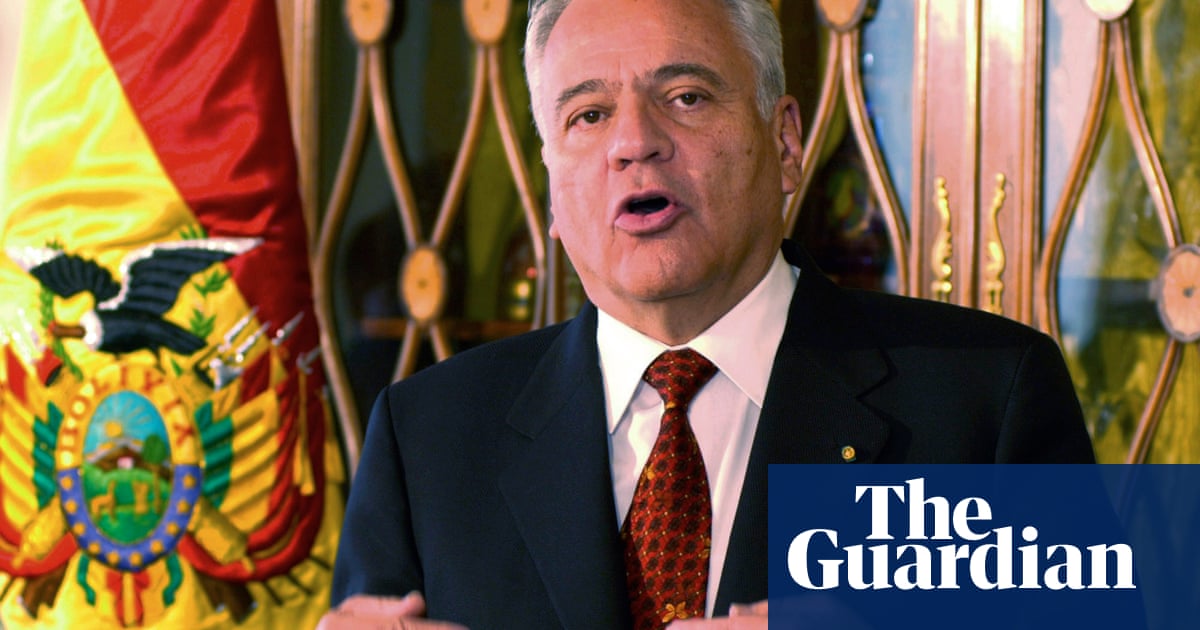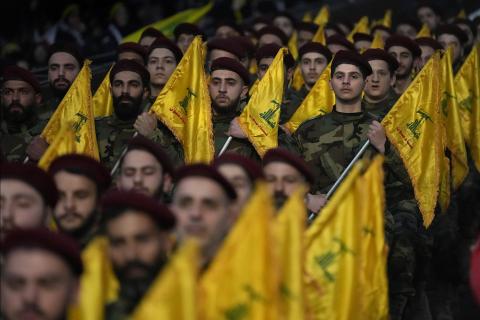
US Drug Enforcement Administration agents have extradited the Honduran former president Juan Orlando Hernández to New York, where he will face federal drug trafficking and weapons charges.
Honduran national police delivered a handcuffed Hernández to DEA agents at the Tegucigalpa airport just over two months after he was arrested outside his home on 15 February following an extradition request from the US Department of Justice.
Hernández, 53, left office on 27 January after two terms as president. Prosecutors from the Southern District of New York have accused him of accepting millions of dollars in bribes from violent drug traffickers in exchange for protection from law enforcement. He is charged with drug trafficking conspiracy and two related weapons charges, which carry a combined mandatory minimum sentence of 40 years in prison.
Hernández is expected to plead not guilty upon arraignment. He has repeatedly denied any involvement with drug traffickers, describing the allegations as lies made up by criminals who are trying to reduce their own sentences through cooperation.
“This is revenge from the cartels, it’s an orchestrated plot so that no government will confront them again,” he said in a handwritten letter published last month. “Part of that conspiracy has been a campaign of hate and misinformation. But it’s evident, the contradictions of criminals, trial after trial, they lie and contradict themselves.”
Considered one of Washington’s top allies in the region during his first term, garnering praise from US officials including the then vice-president, Joe Biden, the conservative president fell out of favour with Democrats following his questionable 2017 re-election and mounting drug trafficking allegations after the arrest of his brother, the former legislator Juan Antonio “Tony” Hernández, on the same charges in 2018. Tony Hernández was later convicted and sentenced to life in prison.
President Biden shunned Hernández upon taking office last year, but has since embraced the new Honduran president, the centre-left Xiomara Castro, who was elected by a landslide in November in a vote considered a referendum on the eight scandal-plagued years of the Hernández administration. The extradition of Hernández – once untouchable in Honduras – presented an early test for the Castro administration, which came to power on a promise to fight drug trafficking and corruption.
Over the past three years, the case US authorities were building against Hernández became increasingly clear. Prosecutors named Hernández as an unindicted co-conspirator in his brother’s trial and two subsequent cases, including that of the former national police chief Juan Carlos Bonilla.
According to the complaint filed against Bonilla, nicknamed “el Tigre” (the Tiger) for his fierce appearance and violent reputation, the former top cop allegedly protected drug shipments and carried out special tasks for the Hernández brothers, including murder. He was captured on 9 March after nearly a year on the run and is likely to be extradited to New York in May.
Hernández had been protected from prosecution by US authorities because of a Department of Justice policy not to indict sitting presidents. But a warrant for his arrest was issued under seal within hours of his leaving office, and the request for his extradition was sent to Honduras three weeks later.
In 2012, as president of the National Congress, Hernández played a key role in the passage of a constitutional reform allowing Honduran nationals to be extradited to the US on drug trafficking and other charges. He often cited this as evidence of his innocence, stating that someone who worked to push extradition through Congress would not conspire with drug traffickers. Hernández is the 30th Honduran to be extradited to the US.
Organised crime has infiltrated politics across Latin America, but Hernández is the first former president in the region to be extradited to the US to face drug trafficking charges.
The case draws close comparison to that of Panama’s former dictator Manuel Noriega, a general and de facto leader who was extradited to the US on drug trafficking charges following a December 1989 US military invasion that ousted him. Like Hernández, Noriega was accused of double-crossing the DEA. He was convicted and spent almost two decades in prison.












